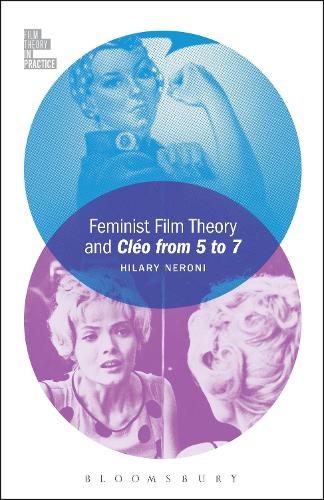
Feminist Film Theory and Clo from 5 to 7
(Paperback)
Available Formats
Publishing Details
Feminist Film Theory and Clo from 5 to 7
By (Author) Hilary Neroni
Bloomsbury Publishing PLC
Bloomsbury Academic USA
24th March 2016
United States
Classifications
Professional and Scholarly
Non Fiction
Feminism and feminist theory
791.4301
Physical Properties
Paperback
168
Width 122mm, Height 202mm, Spine 14mm
180g
Description
The Film Theory in Practice series fills a gaping hole in the world of film theory. By marrying the explanation of a film theory with the interpretation of a film, the volumes provide discrete examples of how film theory can serve as the basis for textual analysis. Feminist Film Theory and Clo from 5 to 7 offers a concise introduction to feminist film theory in jargon-free language and shows how this theory can be deployed to interpret Agnes Varda's critically acclaimed 1962 film Clo from 5 to 7. Hilary Neroni employs the methodology of looking for a feminist alternative among female-oriented films. Through three key conceptsidentification, framing the womans body, and the female auteurNeroni lays bare the debates and approaches within the vibrant history of feminist film theory, providing a point of entry to feminist film theory from its inception to today. Picking up one of the currents in feminist film theory - that of looking for feminist alternatives among female-oriented films - Neroni traces feminist responses to the contradictions inherent in most representations of women in film, and she details how their responses have intervened in changing what we see on the screen.
Reviews
In this useful entry in Bloomsburys Film Theory in Practice series, Neroni (The Subject of Torture) clearly and helpfully explains concepts that are important to feminist film theory, using French director Agns Vardas 1962 film Clo from 5 to 7 as a case study Clo is a rich subject for study, and the authors analysis is nuanced the works accessibility makes this an invaluable primer on film theory. One hopes the rest of the series is just as well executed and that Neronis voice will often be heard in future. * Publishers Weekly *
Neronis eloquent prose educates the novice while delighting the expert. Through a deft analysis of the contradictions of femininityparticularly the conflicting ideals of sexuality and motherhoodNeroni brings to life key concerns of feminist film theory, including identification, engagement, ideology, desire, and the cinematic framing of the female body. Her subtle interpretation of Agns Varda as a female auteur is feminist film theory at its most compelling: a dazzling addition to the theoretical tradition her volume explicates. * Mari Ruti, Professor of Critical Theory, University of Toronto, Canada, and author of The Age of Scientific Sexism *
A highly engaging and incisive introduction to the history of feminism and feminist film theory that explores their role for contemporary debates and feminist film practice through lucid and subtle discussion of a range of women film-makers. * Elizabeth Cowie, Professor Emeritus of Film Studies, University of Kent, UK *
Neronis text will appeal to many since its approach is both general and specific in its concise review of previous research and trends in the field as well as its presentation of new perspectives a must-read in French feminist film theory courses. * The French Review *
Author Bio
Hilary Neroni is Professor of Film and Television Studies at the University of Vermont, USA. She is the author of The Subject of Torture (2015) and The Violent Woman (2005), and has also published numerous essays on female directors.
